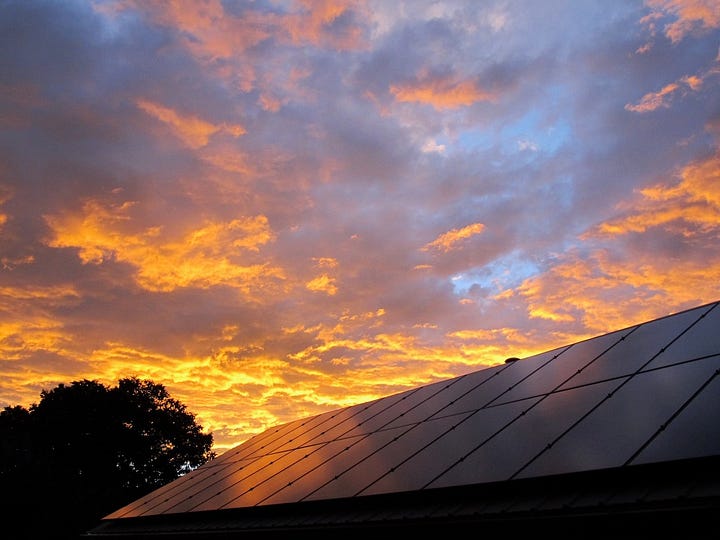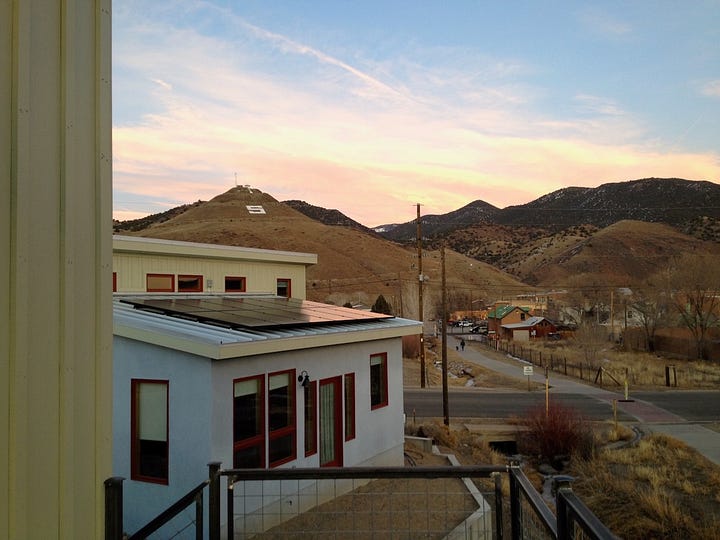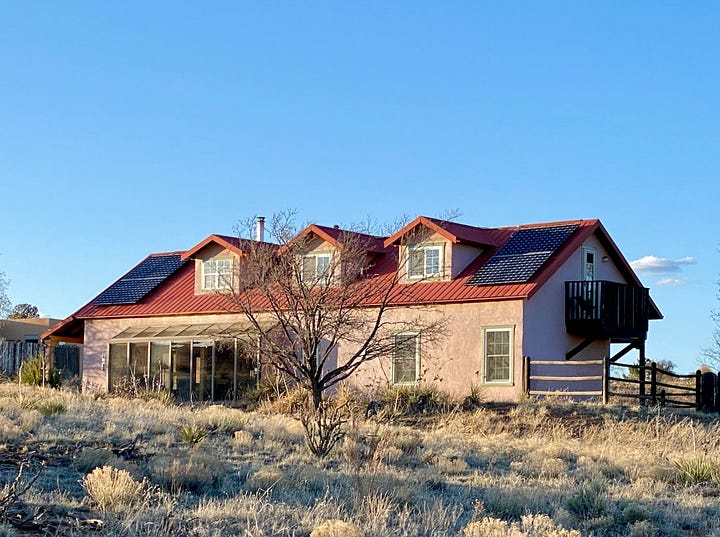I sing the body electric. —Walt Whitman, “I Sing the Body Electric” from Leaves of Grass
Hello Friends! It’s Tuesday and time to practice gratitude to remind us that there is light and love in the world even in difficult times. Last week, I was grateful for my new windows; this week I am grateful for something even more basic that we rarely think about and usually take for granted: electricity, which powers our devices, our lights, our engines and so much of our modern lives.
Why am I grateful for electricity? Because today I don’t have any, so I am forcefully reminded of how important that energy source is to my daily life. The power in my neighborhood is shut off in order to safely hook us up to new and more efficient underground cables dug in over the past few weeks.
This morning I am very aware that electricity powers my house: my stove and microwave are electric, my refrigerator is electric, my washer and drier are electric; the pump for the boiler that moves hot water through the pipes in my floors providing radiant heat is electric. My wifi router is electric, my lights are electric, my computer and phone batteries are charged by electricity….
Fortunately, my house is also heated and lighted by a more distant and diffuse source of power—the sun—so it’s cozy and light now that the sun is up even without that harnessed electrical power.
What is electricity?
The energy source for much of life, in the positive and negative charges carried by particles like electrons. (Another example of the yin and yang essential to all of life.) Think static electricity, the spark that jumps between opposite charges. Or lightning, an energy discharge between positive and negative on a much grander and more dangerous scale. (Kind of like political discourse today.)
Electrical current is simply the flow of those charged particles, as in a power line or a wire in your house wall feeding a socket for a light or an outlet. When you flip a switch to allow the charged particles to flow through the wire, the light turns on; when you insert a plug into the outlet, that stream of charged particles (energy) flows through the cord and powers whatever you have plugged in to the outlet.
The flow of charged particles seems innocuous at household levels. But in the aggregate, at higher levels like the new underground cables that supply my neighborhood, that flow carries the same deadly power as lightning—its surge through your body can stop your heart, which runs on your own internal electrical energy, or burn you to death.
Where does electric power come from?
Externally, the stream of charged particles we call electrical current can come from the massive amounts of heat energy thrown off by the sun, the kinetic energy in wind or moving water, from burning fossil fuels like oil and natural gas and coal, from splitting uranium or plutonium atoms (as in the atomic bomb or nuclear power).
Internally, when our metabolisms “burn” our food, we create electrical energy to run our nervous systems and modulate the beating of our hearts, among other functions.
The electricity that powers my house comes from a mix of power generation sources: 27 percent from coal-fired plants, 35 percent from nuclear power, 14 percent natural gas, and 24 percent renewable (a mix of wind generation, solar and hydropower).
The power I would prefer to be using comes directly from the sun, collected by photovoltaic panels. After the energy cost of producing those panels, solar energy is clean and renewable, without the deadly potential of high-voltage power lines, or the climate impacts of fossil fuels and the radioactive waste of nuclear power.
I have had rooftop photovoltaic arrays on four of my last eight homes. I hope to put solar panels on my roof here, but right now, my savings are going into urgently needed maintenance (new roof, new windows, new stucco). Solar panels will have to wait!




Cultivating Sacred Energy Awareness
Not having electricity makes me aware of how much I use, and strengthens my resolve to use that flow of electrons conservatively. And it makes me aware of how fortunate I am to normally have a dependable supply, something we in this country tend to take for granted, along with clean, running water.
In many parts of the world, the power supply is not so cushy: in the rural African village where my sister-in-law, Lucy, has taught English to local students, the power is on for only several hours each day. In war-ravaged places like Southern Sudan, parts of Ukraine, or much of Gaza, electricity is nonexistent, along with clean water, shelter, and the other necessities of life.
Sitting in my silent house, with no devices or motors humming, no music playing from the speakers, it occurs to me that electrical power, that stream of microscopic charged particles, is as sacred as any other elemental force of the universe.
Electrical power, that stream of microscopic charged particles, is as sacred as any other elemental force of the universe.
To use that force without thought or awareness, to waste that energy, is to disrespect one of the gifts of this earth. As essentially spiritual beings, awareness of and respect for what powers our lives seems to me a critical part of being human.
So I am grateful to have reliable electricity, and resolve to use it more mindfully and carefully—to sip that sacred and elemental power, not gulp it.
Where does your electrical power come from? Are you mindful of how you use it? If you saw that power as sacred, would you use it differently? Hit the comment button below and let us know!





Appreciate you delving into the basics to offer insight and increased awareness. Thanks for taking time to beautifully express your musings, facts and contemplations.
I'm also exploring how my body's electricity communicates non-lineal and non-logical "knowing". When an idea or proposal really resonates, I'll often get a tangible surge of electricity - particularly thru my limbs. I've learned to trust it as a reliable indicator of an inner "yes".
Perhaps we need a few more of those kind of revolutionary programs in this country today. Some a simple federal program created a century of growing prosperity (for some).